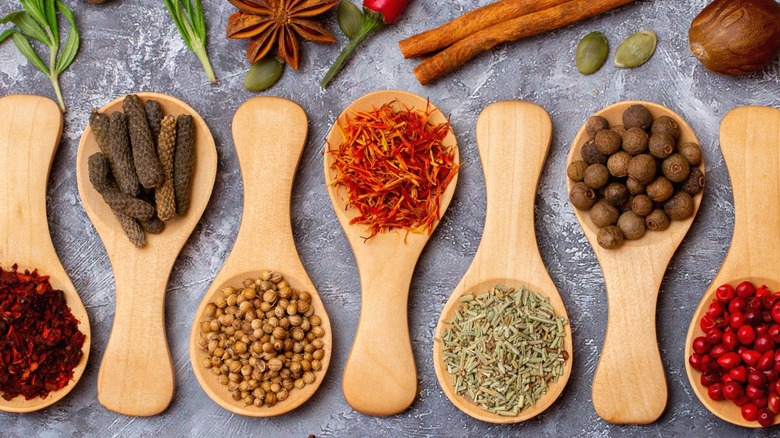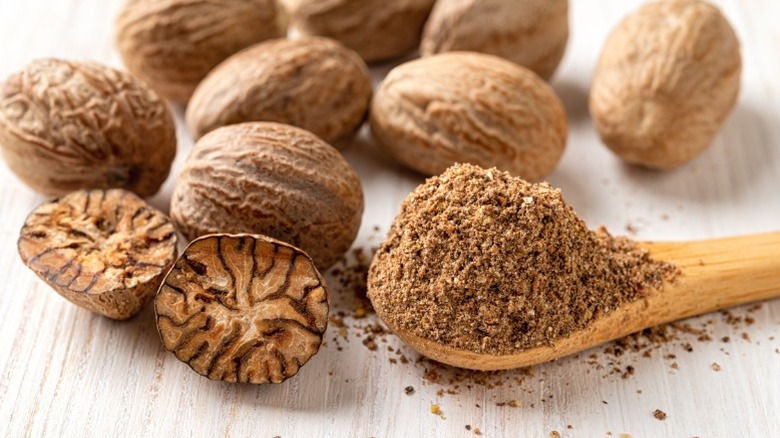Are Expensive Spices Actually Overpriced?
For about as long as humans have been eating food, we've been looking for ways to make that food taste a little better — and when we find a certain substance that improves our food, we'll stop at nothing to get it. Although Roman soldiers were never actually paid in salt, it's still a hugely important resource, and pepper was once so precious it was referred to as "black gold." Empires have been built on the back of the spice trade. And yet, despite all their historical significance, some people still take spices for granted. This is to say that, no, the cardamom and nutmeg you find in the spice aisle of your supermarket isn't overpriced. Indeed, the fact they're this cheap is a historical anomaly. (And anyway, you can get spices cheaper at international grocery stores.)
Consider saffron, commonly considered the most expensive spice in the world. What we consider to be saffron is only one small part of the saffron flower — which means it takes a whole lot of flowers to produce just one pound of the spice. On top of that, the delicate nature of the flower means the spice has to be harvested by hand, which requires more manpower and results in a higher production cost. Automation is a major reason why a lot of the goods we take for granted are so affordable; when something can't be automated, it stands to reason that it stays more expensive.
The price of a spice doesn't just come from the spice itself
Sometimes the price of spice can be affected by factors apart from their production — sometimes it's just a result of people trying to wring every last penny out of you. If you've ever cringed at the cost of nutmeg, for instance, you may (or may not) be comforted to know that it's a great deal less expensive today than it was in the past. In the days when the Dutch had a monopoly over the spice (which was solely produced in Indonesia, a Dutch colony at the time), it was routinely sold for eye-watering prices. Nutmeg was so significant, in fact, that in 1667 the Dutch happily allowed the Brits to keep control of Manhattan in exchange for a nutmeg-producing island.
There are other factors, too. Even if you don't have colonists artificially inflating the price, spices are as susceptible to supply and demand as any other good. For example, cardamom, another expensive spice, often has its price affected by inclement weather, which can destroy whole harvests. Suddenly, the "demand" is a whole lot higher than the "supply", and cardamom becomes more expensive. This is all to say that, while certain spices might give you a bit of sticker shock, it could always be worse. In any case, it's worth picking up whole spices rather than ground. If you'd rather shop on a budget, you can pick up certain spices from a dollar store.

